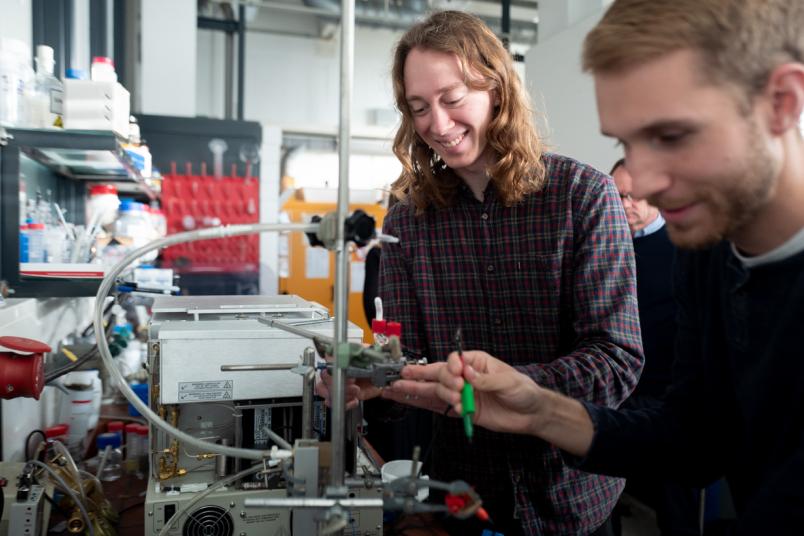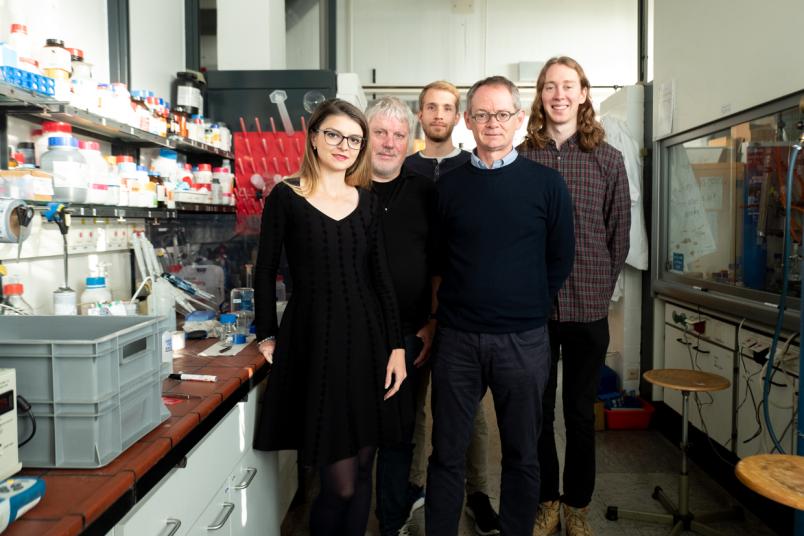
Inspired by nature
Converting CO2 to valuable resources with the help of nanoparticles
Enzymes use cascade reactions to produce complex molecules from comparatively simple raw materials. Researchers have now copied this principle.
An international research team has used nanoparticles to convert carbon dioxide into valuable raw materials. Scientists at RUB and the University of New South Wales in Australia have adopted the principle from enzymes that produce complex molecules in multi-step reactions. The team transferred this mechanism to metallic nanoparticles, also known as nanozymes. The chemists used carbon dioxide to produce ethanol and propanol, which are common raw materials for the chemical industry.
The team led by Professor Wolfgang Schuhmann from the Center for Electrochemistry in Bochum and Professor Corina Andronescu from the University of Duisburg-Essen, together with the Australian team led by Professor Justin Gooding and Professor Richard Tilley, reported in the Journal of the American Chemical Society on 25 August 2019.

“Transferring the cascade reactions of the enzymes to catalytically active nanoparticles could be a decisive step in the design of catalysts,” says Wolfgang Schuhmann.